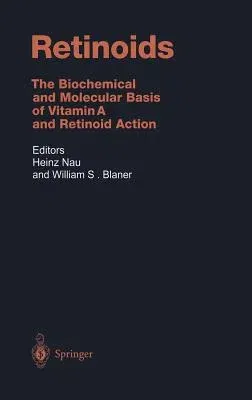In the future' the decade of the 1990s will likely be viewed as a Golden
Age for retinoid research. There have been unprecedented research gains
in the understanding of retinoid actions and physiology; since the
retinoid nuclear receptors were first identified and the importance of
retinoic acid in develop- mental processes was first broadly recognized
in the late 1980s. Between then and now, our knowledge of retinoid
action has evolved from one of a near complete lack of understanding of
how retinoids act within cells to one of sophisticated understanding of
the molecular processes through which retinoids modulate transcription.
In this volume, we have tried to provide a comprehensive update of the
present understanding of retinoid actions, with an emphasis on re- cent
advances. The initial chapters of the volume, or Section A, focus on the
physicochemical properties and metabolism of naturally occurring
retinoids: - N OY provides an uncommonly encountered view of retinoid
effects from the perspective of the physiochemical properties of
retinoids. - V AKIANI and BUCK lend a perspective on the biological
occurrence and actions of retro- and anhydro-retinoids. Section B
considers both the retinoid nuclear receptors and their mechanisms of
action as well as synthetic retinoids that have been used exper-
imentally to provide mechanistic insights into receptor actions and have
potential therapeutic use for treating disease: - PIEDRAFITA and PFAHL
provide a comprehensive review of retinoid nuclear receptor biochemistry
and molecular biology.

